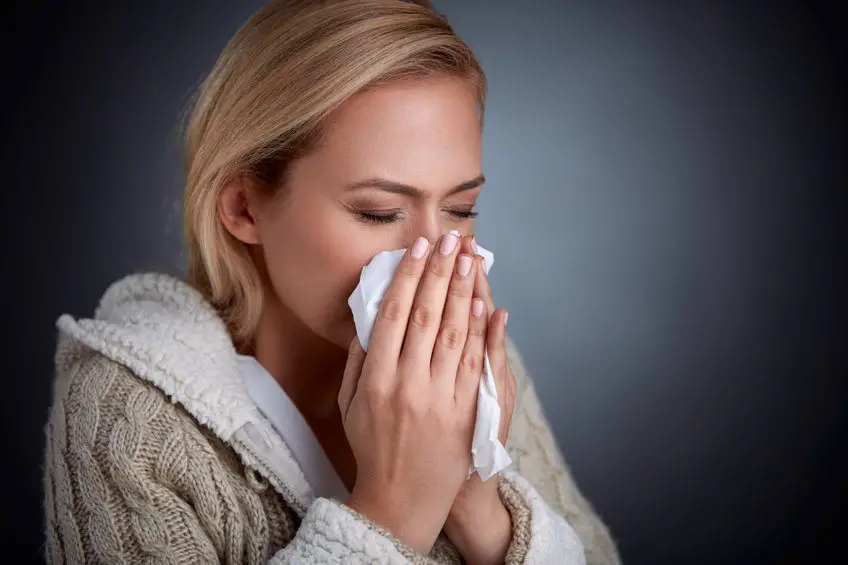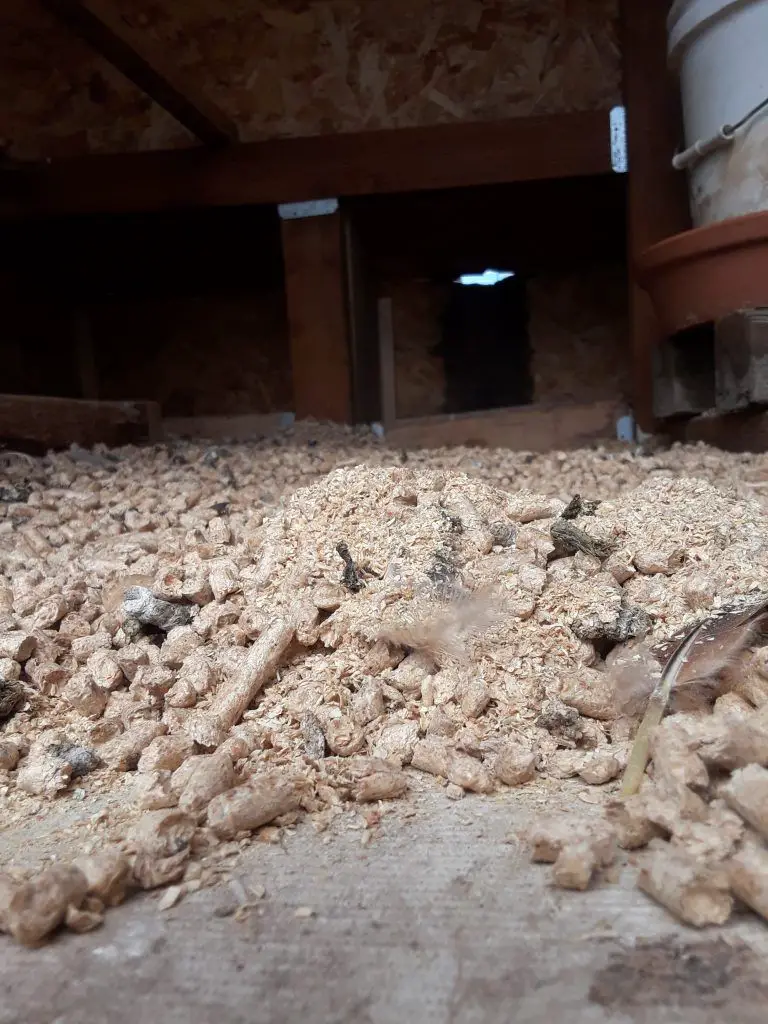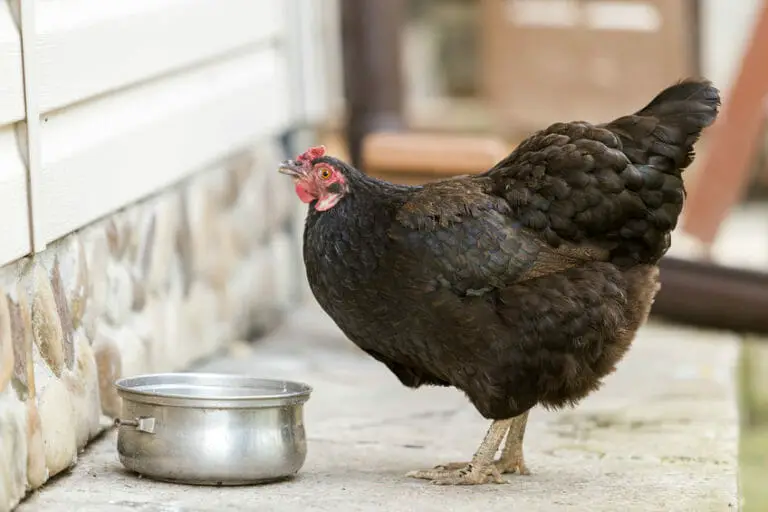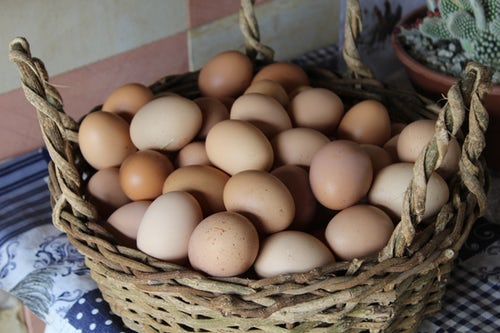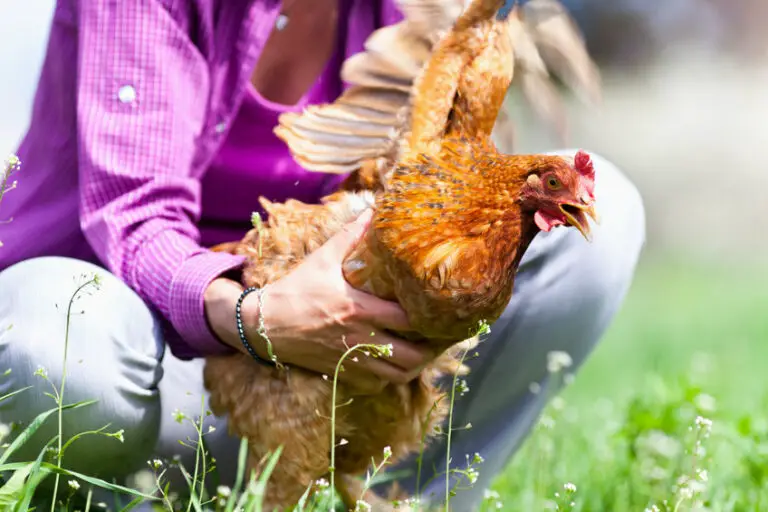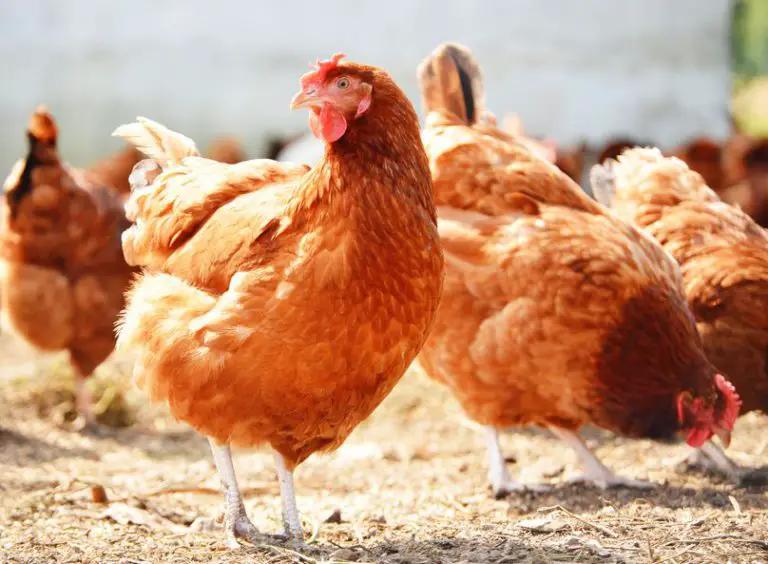Can Cleaning A Chicken Coop Make You Sick? Deep Litter vs Regular Clean Outs
For any chicken owner, keeping your chickens healthy is a number one priority. It is the key to having a thriving chicken farm. However, many farmers ponder the same question when cleaning their chicken coop: “can cleaning a chicken coop make you sick?”
The short answer if yes, but it’s not all that common for most flock owners. Having said that, it DOES happen, so you need to know what can make you sick and how to mitigate those issues.
We like using the deep litter method, but there are concerns this method is more likely to make you sick because it can be more dusty. By chickens scratching in the deep bedding, more dust is kicked up and there is a greater likelihood of breathing in dust, which can be contaminated with salmonella or other harmful bacteria.
Having said that, we far prefer this method over a more traditional method of coop cleaning. A more traditional approach to cleaning the coop entails cleaning the coop weekly (or daily), and deep cleaning several times per year.
Thankfully, both methods are effective in keeping your coop sanitary IF done regularly. We discuss the ins and outs of both methods next.
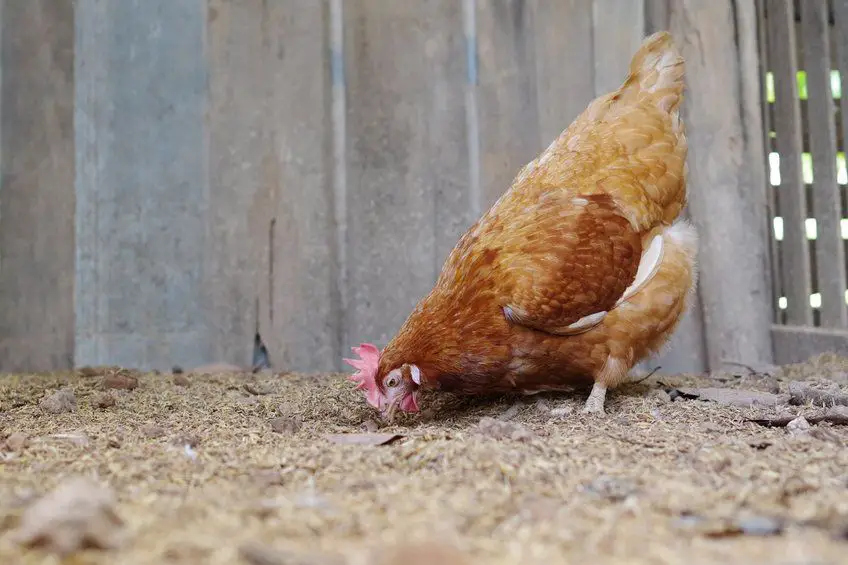
What Is the Deep Litter Bedding Method?
The deep litter bedding method is basically a low maintenance way to keep your chicken coop clean. First, you layer bedding (wood pellets, straw, wood shaving, hay, etc) 2 inches or more deep.
We personally recommend starting out with two inches when you first get your chickens and then add a few layers an inch or two thick every few weeks after that.
Basically you stir the bedding with a rake or shovel once or twice a week. As the original bedding starts to break down, you should just add more bedding on top.
You can fully clean the coop when it gets around to 8 or 12 inches tall which can be once a year or every other year. We now go every other year without issues and have never gotten sick.
The key is remembering to stir the litter regularly! If not, the poop can pile up and create an ammonia smell, toxic fumes, and create a haven for harmful bacteria. This is what can make you sick.
If you want to find out more on how to set up the deep litter method, we have an article going into more detail here.
Differences between Deep Litter And Traditional Coop Cleaning Methods
The deep litter method of managing chicken manure in the coop is, in our opinion, the easiest method to maintain. By stirring the litter occasionally, you’re eliminating the smell in the coop. We’ve used it for many years now, and love it’s simplicity.
Neither us nor our chickens have gotten sick from using the method, and we notice that when the litter is deep enough, they use it as another to take a dust bath.
Are there any downsides to using deep litter method?
- The deep litter method can potentially be dusty while stirring it. We have not noticed a great deal of dust in the air and have never gotten sick from it. But if you’re concerned about this, wear a mask while completing the job and follow the tips outlined later in this article. We have not noticed our chickens getting sick from this method either but they are always out the coop during the major clean out when we change the litter.
- Without proper ventilation, the air can become stagnant in the coop. As your flock begin scratching at the litter (as they often do) it can kick up dust that will hover in the air longer if there isn’t adequate ventilation. That fresh air is important!
Regular Coop Cleaning
The more traditional way of keeping your coop clean is to simply do so more often. You won’t have to mess with adding new layers of bedding and stirring it into the existing layer(s).
If you don’t like the concept of the deep litter method and prefer to simply clean your coop regularly, that’s fine as well. There’s certainly nothing wrong with doing it that way, it just involves more regular clean outs.
Many folks are fine with that, and don’t mind the added work. After all, most chicken coops are pretty small and won’t take that terribly long to clean. This ensures you and your flock remain free of any respiratory issues, which are more common in coops that are not cleaned and the feces pile up, etc.
Another boon of regular coop cleaning is you get to inspect the overall condition of the coop during each cleaning and make any needed repairs.
You’ll also be able to check on your flock more often! For us, we are a large family with full time jobs, activities, and the like. So as much as we like spending time with the flock, it can be hard to squeeze it into each day. Those regular cleanings can be a great time to see how your flock is doing and making sure they are healthy.
Downsides to regular coop cleaning?
- Cleaning needs to be done fairly often – Scooping feces out of the clean litter weekly, and deep cleaning around once per month is an “average” amount of cleaning that many flock owners do. To be honest, what’s considered as the “right time” to clean the coop can be quite subjective! Some folks believe it only needs to happen every few months, others think it should be done daily.
- Added expense – Extra cleaning means more litter to buy. This can add up over time.
For more information on coop cleaning, see this article.
Why Should You Keep Your Coop Clean?
Keeping your coop clean is very important for the health of your chickens, yourself, and anyone else who lives with you. The odor from chicken poop does not only have a horrible smell, it can also cause your chickens to grow ill.
A buildup of ammonia, which can come from the odor, can lead to respiratory issues in your chickens. All of this is why you should keep your chicken coop as clean as possible.
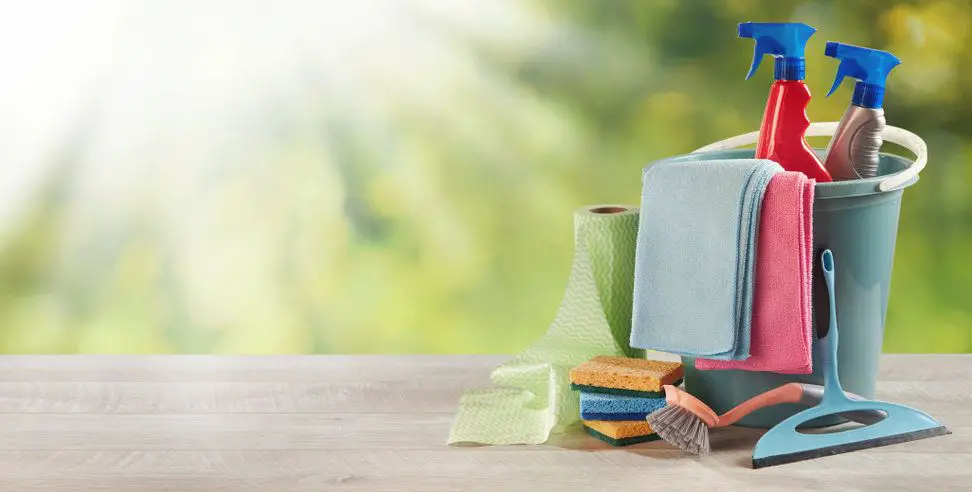
Well, Does Cleaning a Chicken Coop Make You Sick?
It depends. If bacteria and diseases start to grow in your coop or you inhale dust particles, you will have the possibility of getting sick or one of your chickens sick. You can get diseases like salmonella, the flu, e. coli, and exotic Newcastle disease if you don’t protect yourself.
Tips on How to Avoid Getting Sick
Now that you know you can get sick, here are some of our tips for keeping you and your chicken safe from any diseases or illness. Our source for this information came, in part, from this article.
1. Wear Protective Gear When Cleaning Your Chicken Coop
Wearing protective gear can protect you from inhaling dust particles or bacteria. Your protective gear can be gloves, goggles, old clothes, and a respirator or a N-95 mask. Ultimately, you should make sure your eyes and mouth are completely covered and protected. It might be a smart idea to invest in high quality masks or goggles for this step.
2. Change Your Clothes and Boots After Cleaning the Coop
Having a special pair of clothes and boots to wear when cleaning your chicken coop can save you a lot of trouble. It’s very important that you prevent your family, pets, or even yourself from coming into contact with particles of chicken manure.
Leaving particles of chicken manure around can make anyone that comes in contact with it ill. Especially if you have a cat or a dog around, as they can become ill if they eat or inhale chicken manure particles.
After cleaning, make sure you spray any chicken poop off of your shoes. It’s best to prevent the spreading of chicken manure as much as you possibly can. Take your clothes off directly after cleaning your chicken coop and put them into the wash immediately.
Keep your chicken coop cleaning clothes separate from the rest of your clothes to – again – prevent the spreading of chicken manure.
3. Wash Your Hands
This probably goes without saying but, after you clean your coop and change your clothes, wash your hands! Washing your hands with soap and water for 30 seconds before and after can help prevent you from spreading any diseases to your chickens or yourself.
This not only applies to cleaning your chicken coop, but also to any contact you have with your chickens. A good tip in general is to wash your hands before and after feeding or touching your chicken. Keeping your hands free of any illness and disease will help everyone around you stay in good health.
4. Fully Cook Your Meat and Eggs
Most chicken owners have chickens for the sake of being able to cook their meat and eggs. While it can be fulfilling to have your very own farm, you still need to be very careful when cooking your own eggs.
Remember to get rid of any cracked eggs. Also cook eggs and meat that have been contaminated with chicken poop thoroughly before eating. Eating a contaminated egg or meat that hasn’t been completely cooked can make you very sick.
5. Refrain From Kissing Your Chickens
Sounds a little odd, huh? Chickens, like cats or dogs, can be viewed as part of the family for many chicken owners. Unfortunately, kissing your chicken, like you would a pet, can cause harm to your health.
Of people who had contracted Salmonella 13% kissed a chicken, 46% had a chicken in the house, and 49% snuggled a baby chick, according to a study done by the CDC from 1990 to 2014. So, while we love our chickens like family, it’s probably best to keep physical contact to a minimum.
Coop Cleaning Products
There are many products that assist with coop cleaning. If you’re planning to really disinfect the coop after scooping out the old litter, a natural solution of equal parts vinegar and water solution works well and won’t irritate the respiratory system of your flock.
Sprinkling some diatomaceous earth (DE) on the floor of the coop can also help smother any mites and can be used as part of the base if you use the deep litter method. When the flock decides to have a dust bath in the coop, the added DE can help control mites or other skin irritants.
Final Thoughts
In summary, while the deep litter bedding method is a convenient and easy method of keeping your chicken coop clean and odor free, you still have the possibility of becoming sick. The same can be said of doing regular clean outs, which is why you should take precautions as needed.
If you use the deep litter method in your coop and you see that it’s particularly dusty, simply wear a mask or literally wait until the dust settles. Thanks to COVID, we all likely have a few masks laying around!
Remember to wear protective gear, change your clothes and boots, fully cook your meat and eggs, and not to kiss your chickens. Keeping you and your chicken healthy is what’s most important!
We wish you the best of luck in cleaning your chicken coop and Happy ‘chickening!’

